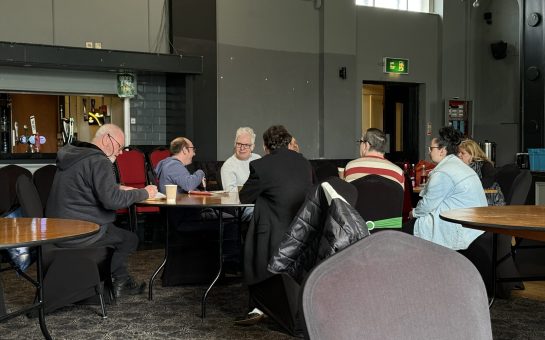A Manchester magistrate’s campaign against mandatory court charges for offenders has succeeded after the Justice Secretary announced that they will be scrapped.
Michael Gove told the Magistrates Association National Council that the charges, which are a fixed amount regardless of the offender’s income, will be abolished from December 24.
Trafford magistrate Richard Monkhouse was a leading critic of the charges as chair of the Magistrates Association, warning they were forcing the innocent to plead guilty.
“I’m absolutely delighted,” he told Mancunian Matters.
“I stood down as chair two weeks ago, it’s my first council meeting since.
“I’m very pleased – I’m sorry I wasn’t there just to celebrate.
“Magistrates all over the country are very pleased.”
The charges were introduced in April to force offenders to cover some of the costs of the courts system.
They are £150 if a defendant pleads guilty but can rise to £1000 if they plead innocent and are convicted.
Mr Monkhouse told MM in September that he’d seen unprecedented resignations from magistrates in protest at the charges, describing them as ‘not fair and not just’.
He also added that the charges could encourage offenders to commit further crimes to pay them.
Speaking to the Magistrates Association on December 3, Mr Gove said: “The intention behind the policy was honourable – to make sure that those who impose costs on the criminal justice system make a contribution to those costs wherever possible.
“If you’ve deliberately broken the law, if the taxpayer has to shell out to ensure justice is done, then there can clearly be a case for the court imposing a financial order.
“But whenever I have had the opportunity to talk to magistrates over the last six months the Criminal Courts Charge has been raised and in almost every case it has been criticised.”
A review of the entire system of court-ordered financial impositions on offenders was also announced, with the aim of bringing ‘greater simplicity and clarity’.
“I think common sense has prevailed from Michael Gove,” said Mr Monkhouse.
“He appeared to be in listening mood. Some of the things that he said have given purpose to do some reforms.”
Mr Monkhouse added that further reforms to the system of court charges would be ideal, pointing to the fact that convicted offenders face five separate charges, including Crown Prosecution Service costs and the victim surcharge.
“The defendant won’t know where to start,” he said.
“Yes, people need to be fined, but there should be a single charge instead.”
Implementing the Criminal Justice Act 2003 would be a good in the magistrate’s eyes, which would increase the power of Magistrate courts – something which he believed would make ‘a significant difference’.
He believes the move would reduce the pressure on crown courts, saving up to £40 million a year and allowing victims to see justice more quickly.
Mr Gove told the Magistrates Association: “I am deeply grateful for the service you all give, the country owes you all an enormous amount.
“You choose to use your precious spare time to serve the public.
“Your dedication, commitment to upholding the rule of law and commitment to justice make our country a better, safer, fairer place.
“And the sheer diversity of backgrounds from which you come is a great strength.”
However, Mr Monkhouse said Mr Gove should ‘stop saying these things if [he’s] not going to do anything to recognise the work of magistrates’.
Image courtesy of Gerald England, via Geograph, with thanks



